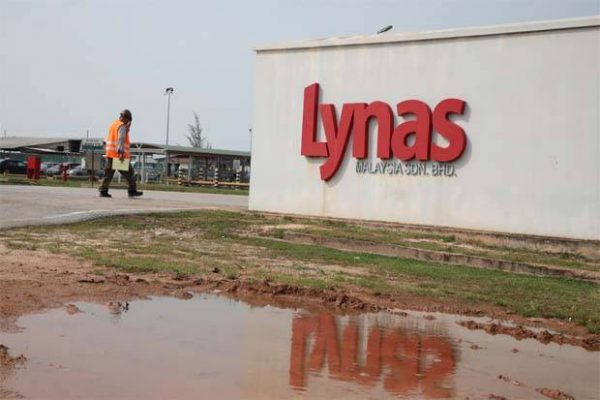Malaysia plans to extend licence for rare earths producer Lynas
Malaysia plans to extend Lynas Corp’s licence to operate a rare earths processing plant,though it could be for a shorter duration than the usual three years, sources said. The Australian company has been running the plant in Malaysia since 2012 using rare earths mined from Mount Weld in Western Australia, despite a dispute over the removal of low-level radioactive waste produced by the plant. A decision to extend the licence is important for the market for rare earths, as Lynas is the biggest producer outside China. The sources told Reuters that the precise duration of the extension was not yet finalised. Lynas,which sells most of its products to Japan,declined to comment. (The Star Online)
Fiabci: Property market still healthy amid overhang concerns
International Real Estate Federation (Fiabci) Malaysia President Michael Geh said the country’s property market remains healthy, after recording sales of about 90,000 units of residential properties with a total value of about RM30 billion within the first half of this year. Napic recorded total transactions of 52,212 residential units valued at RM18.26 billion for the first quarter of 2019. Geh referred to an earlier report that total 8,823 units with a sales value of RM5.7bil were sold as at June under the government’s Home Ownership Campaign (HOC). “These figures do not reflect the entire residential property market as it does not include the secondary market and other projects that were not under HOC,” he said. He said the bulk of the 94,200 transactions in the first half of 2018 were from the secondary market. (Malay Mail)
KL prime homes defy sluggish property market
Prices of prime residential properties in Kuala Lumpur rose 2.4% in the first half of the year (1H19) amid a sluggish property market, according to Savills Research. According to The Savills World Cities Prime Residential Index, Kuala Lumpur’s average prime residential property prices stood at US$260 (RM1,088) per sq ft (psf) in 1H19. For the 12-month period ended June 2019, prices rose 2%. The index considered a sample of both landed and high-rise residential units in prime areas of Ampang Hilir, Bandar Utama, Bandar Sunway, Bangsar, Bukit Tunku, Desa Parkcity, KLCC, Mont Kiara and Tropicana. For five years up till June 2019, prime property prices in Kuala Lumpur rose 13.7%. Kuala Lumpur’s prime property prices recorded the fourth highest growth for 1H19 in the Savills World Cities Prime Residential Index, after Berlin (4.2%), Paris (3.9%) and Beijing (2.9%). (The Sun Daily)
Mah Sing buys Melawati land for RM378m condo project
Mah Sing Group Bhd is acquiring an approximately 1.81ha (4.52-acre) land along Jalan Wangsa Melawati 1 for RM61.97 million to develop two blocks of condominiums with an estimated GDV of RM378 million. Its wholly-owned subsidiary Maxim Heights Sdn Bhd had signed the conditional sale and purchase agreement with JL99 Property Sdn Bhd’s wholly-owned subsidiary KLFA Properties Sdn Bhd. The tract is a leasehold land expiring on Jan 21, 2117, and has approved development order for residential development. “Based on preliminary plans, the new project, to be named M Adora is planned for a fully residential condominium development with amazing city and highland view,” the company said. (The Edge)
Chinese companies relocating operations to Malaysia amid trade war
Companies in China are relocating most of their operations to Malaysia amid the country’s trade war with the United States (US). IQI Global chief economist and Global player Shan Saeed said there were also a slew of Chinese investments going to Vietnam. “Some economies are actually benefiting from this trade war… some economies benefiting in the information and communications technology (ICT) and automobile sectors were from Malaysia, Thailand and Vietnam,” he said. Last Thursday, President Donald Trump threatened to impose an additional 10% tariffs on about US$300 billion worth of Chinese imports beginning next month. The next day, China warned of retaliatory measures in response to Trump’s announcement, that could plunge both countries into a deeper trade war. (The Star Online)






